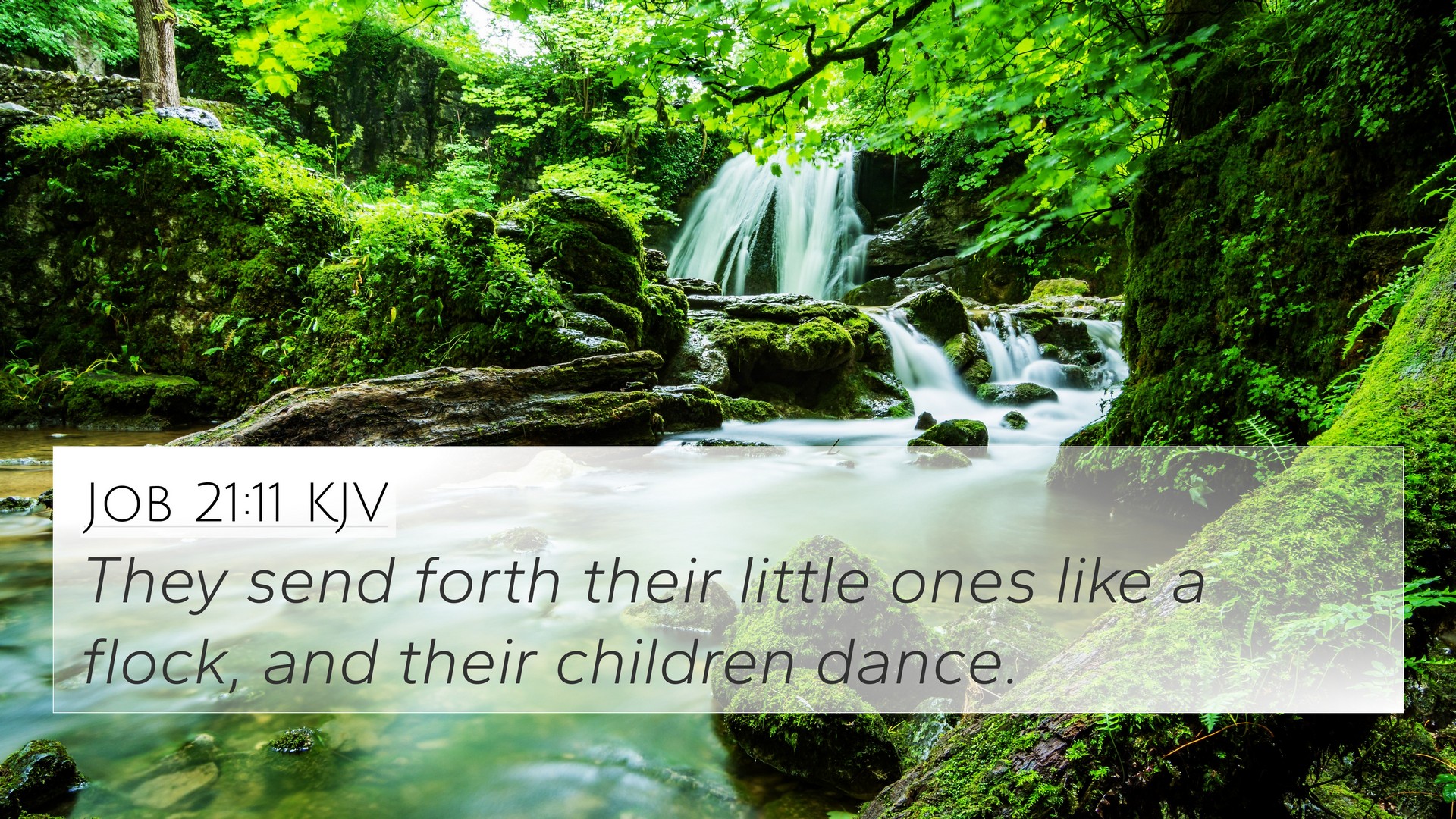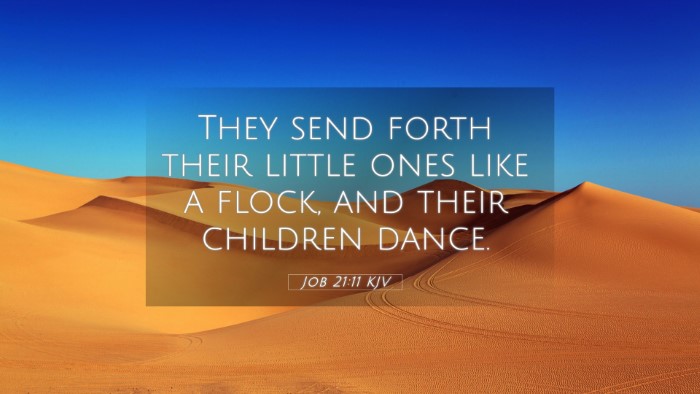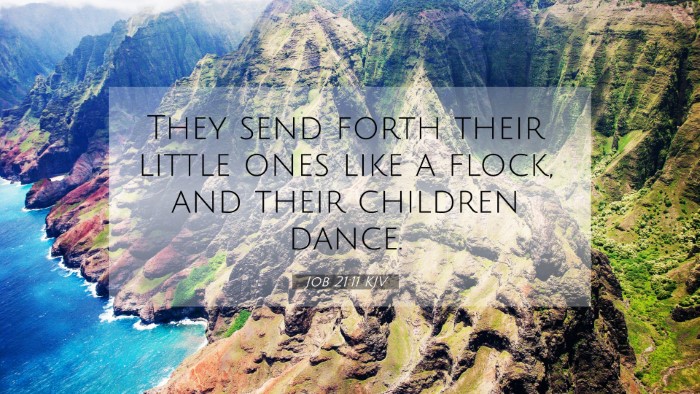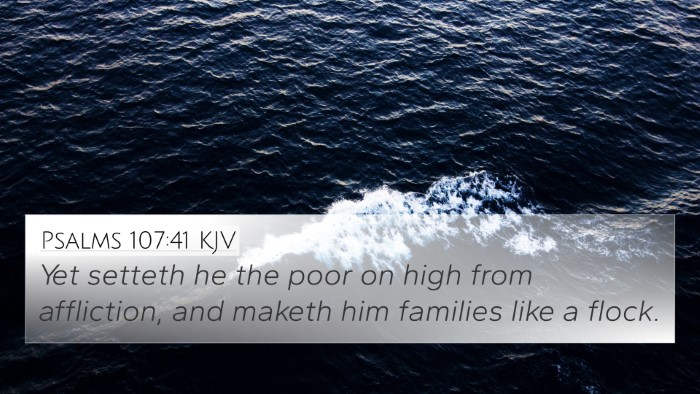Bible Verse: Job 21:11
"They send forth their little ones like a flock, and their children dance."
Summary and Interpretation
This verse from the Book of Job reflects the contrasting perspectives on the prosperity of the wicked and the plight of the righteous. Job is asserting that those who are unrighteous often have lives that seem carefree and joyous, as illustrated by their children. The imagery of children dancing shows the lively and carefree spirit of youth, suggesting that in their worldly success, the wicked experience a kind of joy that seems untouched by the consequences of their actions.
Insights from Commentaries
-
Matthew Henry:
Henry emphasizes the apparent triumph of the wicked and how they seemingly prosper. He notes that the joy of their children showcases a false sense of security and highlights the paradox that despite their evil ways, they appear to escape suffering.
-
Albert Barnes:
Barnes interprets this verse in the context of Job's argument about the prosperity of the wicked in contrast to the suffering of the righteous. He elaborates that the ease with which these children play reflects a life without accountability, raising questions about divine justice.
-
Adam Clarke:
Clarke provides insight into the cultural implications of familial joy in ancient times. He notes that children represent hope and continuity, and their ability to dance signifies a carefree life that contrasts sharply with Job’s suffering. He suggests that Job is bewildered by this disparity.
Thematic Connections and Cross-references
Job 21:11 can be cross-referenced with the following verses, which help illuminate the themes of divine justice, the prosperity of the wicked, and the suffering of the righteous:
- Psalms 73:3-5: Reflects on the prosperity of the wicked and the ease of their lives.
- Proverbs 1:32-33: Discusses the consequences of forsaking wisdom and the temporary peace the wicked experience.
- Ecclesiastes 7:15: Presents the observation that sometimes the just suffer while the wicked prosper.
- Jeremiah 12:1: Questions why the way of the wicked seems to prosper, illustrating Job's lament.
- Lamentations 3:37-39: Speaks on the nature of suffering and God’s justice in relation to wrongdoing.
- Romans 9:22-23: Discusses God’s purposes in allowing certain vessels to endure patience and glory.
- 1 Peter 4:12-14: Encourages believers amidst their trials and the apparent success of those who do wrong.
Benefits of Cross-Referencing
In studying the Bible, utilizing cross-references allows for a deeper understanding of the text by revealing thematic connections and parallels. This verse serves as a key point for exploring the dynamics between joy and suffering, prosperity and hardship, and the enigmatic nature of divine justice.
Tools for Bible Cross-Referencing
For those interested in delving deeper into scriptural cross-referencing, the following tools may be beneficial:
- Bible concordance for word studies.
- Cross-reference Bible study guides to identify thematic connections.
- Online resources for searching for related verses.
- Bible study software that includes cross-reference capabilities.
Conclusion
Job 21:11 illustrates the paradox of the perceived joy of the wicked while highlighting Job's suffering. By examining this verse within the broader context of scripture through cross-referencing, one can gain a more nuanced understanding of the challenges faced by the faithful in a world where justice does not always seem to be served.
Related Queries
Readers often seek answers to questions like:
- What verses are related to Job 21:11?
- How do Job 21:11 and Psalms 73 connect?
- Similarities between Job 21:11 and Ecclesiastes 7:15.
- Bible verses that support the themes found in Job 21:11.




